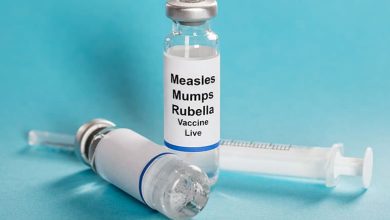
For many years abdominal fat has been a measure of risk for diabetes, but new research from the University of Florida challenges this thinking. In this groundbreaking new study published in the journal Annals of Family Medicine, researchers found that many thin people who are considered to have a healthy body weight, may also be at risk of diabetes. Worse than that, about one third of healthy weight adults may already have prediabetes without knowing it.
While organizations like the American Diabetes Association and the U.S. Preventive Services Task Force call for prediabetes screening of individuals who are overweight or obese, this new research shows that this testing misses a large portion of people who are thin.
According to earlier research by the Centers for Disease Control and Prevention (CDC) as many as 79 million Americans are prediabetic.
What are the Signs?
Some of the signs or symptoms of prediabetes include:
- Excessive thirst
- Severe exhaustion
- Wounds that take a long time to heal
- Ongoing or frequent infections, particularly those that take a long time to heal
- Frequent urination
- Higher than normal blood sugar levels but not high enough for a diagnosis of diabetes, or between 5.7 and 6.4(you’ll want to get your doctor to conduct a test to determine whether you have high blood sugar levels if you have the above symptoms or others that you’re concerned about).
How to Naturally Address Prediabetes and Diabetes
Whole books could be written on the many ways to prevent or address prediabetes and diabetes, but here are a handful of strategies to get you started:
Significantly reduce your sugar consumption. While the sugar lobby continues to claim that sugar is harmless, it has been linked to over 100 health conditions, including diabetes. Someone who I can only presume works in the sugar industry responded to a blog I wrote about the importance of reducing sugar consumption, indicating that people should not eliminate whole categories of food. To that I would state, sugar is not a category of food. It is neither fruit, vegetable, grain, nut, legume or seed. And, neither is it of the animal or fish variety of food.
Sugar is an extract from which all nutritional value has been eliminated, then it is added back into our food, offering no nutritional value and a lot of potential health damage. Check out my blog post “A Guide to Cutting Sugar Out of Your Diet” for more information about the health dangers of sugar, how to reduce your consumption and cut cravings.
Exercise regularly (3 to 5 times per week). Sadly, that doesn’t just mean a casual stroll or flicking channels quickly on the television converter. It means getting your heart pumping, but not so much that you can’t carry on a conversation while you work out.
Watch your antibiotic use. Research in The Journal of Clinical Endocrinology and Metabolism found a link between antibiotic use and diabetes. They identified a significantly increased risk of diabetes with the use of any type of antibiotic in those who redeemed more than one prescription for antibiotics during the thirteen year span of the study. Check out my blog “Surprising Link to Diabetes and an Unusual Way to Help Prevent It” to learn more.
Avoid diet soda like the plague. Recent research published in the medical journalApplied Physiology, Nutrition, and Metabolism found that artificial sweeteners destroy a person’s ability to regulate blood sugar, which is exactly the reason why many people drink diet soda over sugar-laced beverages. Synthetic sweeteners like aspartame could actually be contributing to the development of diabetes. Check out my blog “Diet Soda May Actually Help Cause Type 2 Diabetes” for more information about the link.
Eat a plant-based diet. Research published in the medical journal PLOS Medicine evaluated the diets of 200,727 people to determine whether there was any dietary link to diabetes. They found that a plant-based diet substantially reduced diabetes risk. Simply increase the number of fruits, vegetables, nuts, whole grains, seeds and legumes in your diet to reduce your risk of diabetes and increase your quality of life.







